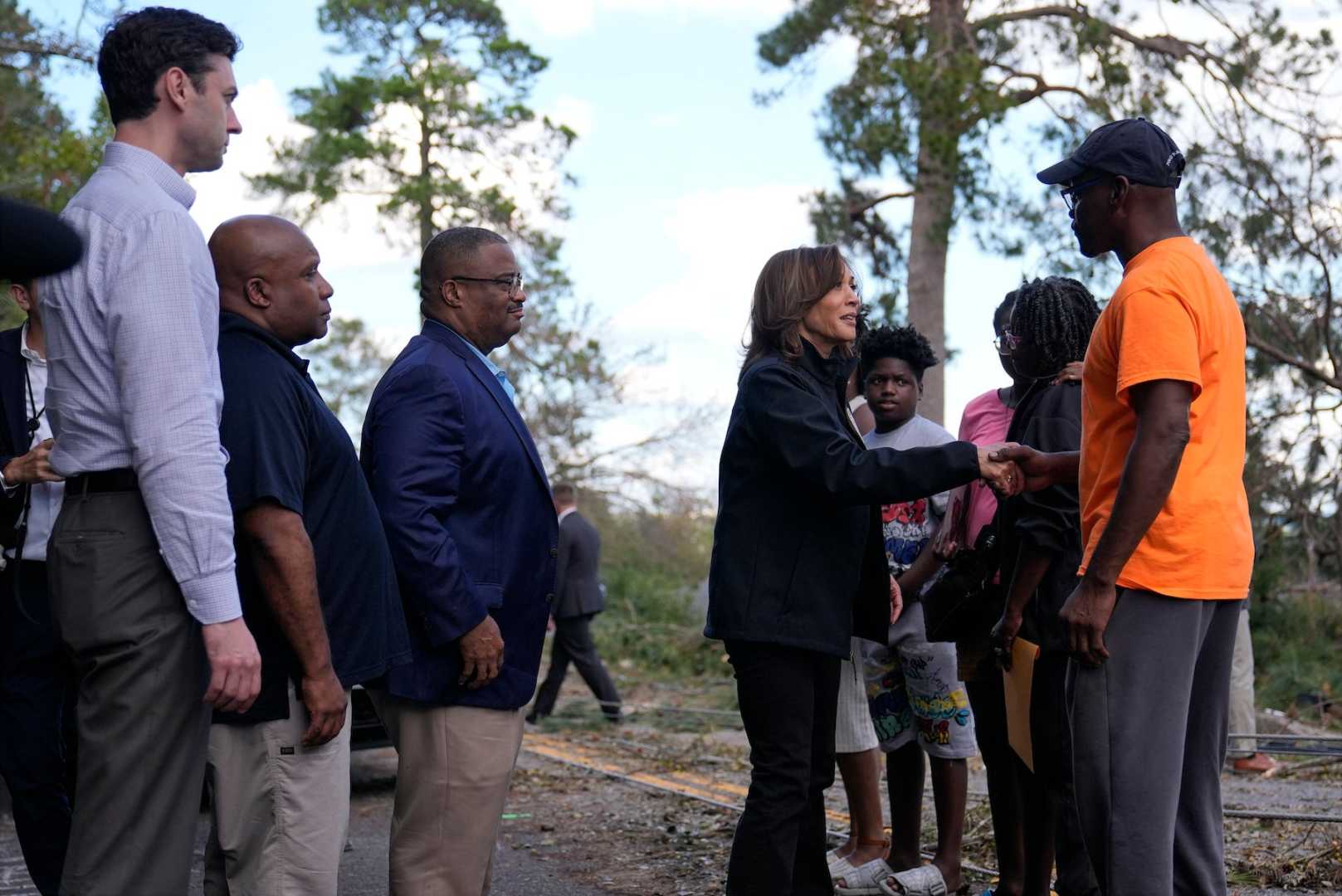News
Impact of Hurricanes on U.S. Elections: A Look at History

The intersection of election season and Atlantic hurricane season is once again stirring political tensions in the United States. The recent arrival of Hurricane Helene, which initially struck Florida as a Category 4 hurricane and continued its path through several southeastern states, has mirrored past instances where storms have influenced political climates. Historically significant hurricanes like Katrina and Maria have shown that natural disasters can complicate electoral processes.
In late September, Hurricane Helene left a significant trail of devastation, claiming lives and flooding communities, most notably in western North Carolina. The federal response to such disasters often becomes a point of contention, and this instance was no different. Criticism of the Biden administration’s handling of the aftermath has been vocally expressed, most prominently by former President Donald Trump. Trump has leveraged both rally stages and social media to criticize the federal efforts, alleging FEMA‘s resources are depleted due to spending on other priorities.
FEMA Administrator Deanne Criswell addressed these concerns, stating, “We absolutely have the funding that we need to support the ongoing response to Helene and the response that we’re preparing for Hurricane Milton.” She emphasized the detrimental effect misinformation can have on response efforts.
As federal and state authorities brace for Hurricane Milton, set to hit Florida soon, additional political strain arises. Reports suggesting Florida Governor Ron DeSantis‘ refusal to take calls from Vice President Harris regarding hurricane relief have surfaced, although DeSantis confirms conversations with President Biden have occurred.
The electoral ramifications of storms have historical precedence. Increases or decreases in voter turnout can hinge on the recovery and response processes, as seen in past hurricanes including Katrina, Gustav, and Sandy, all of which had notable impacts on political landscapes.
For instance, Hurricane Katrina‘s catastrophic impact in 2005 was compounded by widely criticized federal responses, resulting in negative public perception of then-President George W. Bush. Similarly, Hurricane Maria‘s aftermath highlighted disparities and fostered federal critiques, particularly towards President Trump‘s administration.
In some cases, such as Hurricane Sandy in 2012, effective crisis management provided political advantages. President Obama’s prompt and visible response earned him cross-party praise, aiding his re-election efforts.
Hurricane Michael in 2018 also underscores the impact of hurricanes on voting logistics. The storm’s timing near elections altered turnout dynamics considerably, emphasizing the importance of maintaining accessible voting for displaced or affected populations.
The potential influence of storms like Helene and Milton on the upcoming elections remains substantial, especially in pivotal states like Georgia and North Carolina where efforts are underway to ensure affected residents can vote either by mail or in person amid the challenges posed by recent natural disasters.












